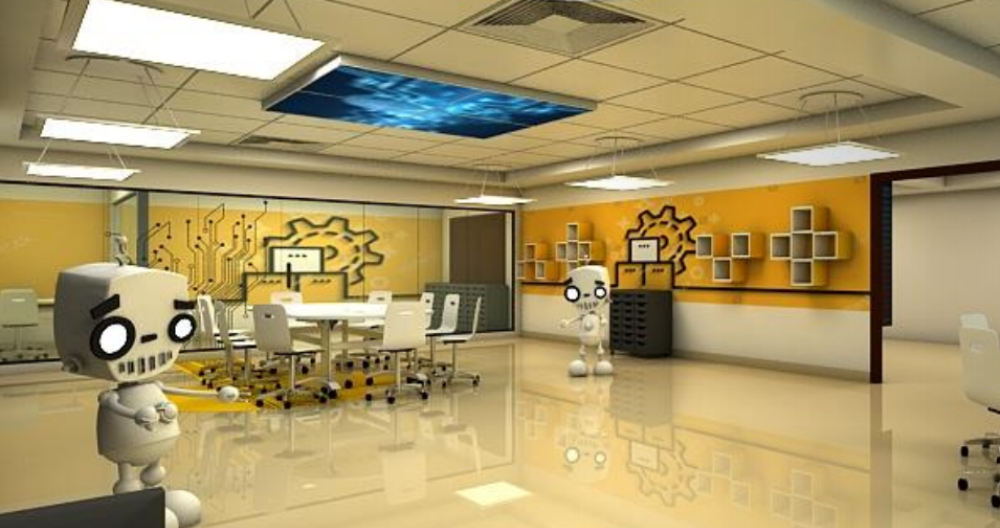In our fast-paced world, Artificial Intelligence (AI) is really leading the charge in tech innovation. Setting up an AI lab goes beyond just gathering the right equipment—it’s about fostering the next generation of thinkers and creators who will thrive in this AI-focused landscape. Let’s dive into some important aspects to think about when establishing an AI lab that truly inspires and educates.
Laying the Foundation with Essential Equipment
Starting with the essentials, you need the right gear to kick things off. An effective AI lab should be stocked with high-performance computers, the essential AI software, and solid network connections. These components lay the groundwork for a lab that runs smoothly and efficiently. When students have access to cutting-edge AI resources, they can dive into advanced topics like machine learning and deep learning without a hitch. It’s important to mix different hardware setups to ensure compatibility with various AI frameworks and projects, making the lab versatile for all kinds of AI exploration.
To really empower learners, it’s a game-changer to have access to cloud-based tools and GPU capabilities. Think about platforms that offer high-performance GPUs – these allow for real-time processing and analysis, which is vital for those data-heavy projects. This not only amps up the lab’s functionality but also gets learners ready to jump into industry-level environments where cloud computing and heavy-duty resources are the norm.
But it’s not just about the hardware; having a well-rounded selection of learning materials is crucial too. A mix of digital and physical resources can really engage students in AI concepts and their applications. Whether it’s textbooks, AI blogs, online platforms, or research journals, these materials provide the backbone of knowledge while keeping everyone updated on what’s new. With a range of content available, students can broaden their understanding of AI, including its ethical dimensions and real-world impact.
Cultivating Knowledge through Diverse Learning Materials
Beyond hardware, a selection of digital and physical resources engage learners in AI theory and applications. From textbooks and AI blogs to online platforms and research journals, these resources provide foundational knowledge and keep users updated on the latest advancements. The availability of varied content encourages students to broaden their understanding and explore AI from different perspectives, such as its ethical implications and real-world applications.
Engaging with resources that offer practical AI insights allows learners to appreciate the technology’s capabilities and constraints. Incorporating articles from reliable sources on topics like AI regulation and responsible AI practices helps students form a well-rounded perspective on the field. Encouraging interactions with these materials fosters critical thinking and a deeper appreciation for AI’s role in modern society.
Encouraging Creativity with Collaborative Spaces
Designing an AI lab with open areas for teamwork encourages the sharing of ideas and problem-solving. Spaces that inspire collaboration help students and professionals alike to brainstorm innovative AI solutions and foster a sense of community. An environment that nurtures interaction between individuals with varied skills can lead to the development of groundbreaking AI technologies, underlining the importance of teamwork in modern technological advancements.
To optimize these collaborative spaces, integrating cutting-edge communication tools can enhance the exchange of ideas. This setting becomes a vibrant hub where students with different expertise, from coding to business strategy, can collaborate on AI projects. By providing platforms for regular interaction and communication, an AI lab can spark creative thinking and problem-solving, driving innovation forward.
Enhancing Skills with Hands-on Workshops
Workshops and practical sessions enhance creativity and understanding. By engaging in hands-on projects, lab users can apply theoretical knowledge to real-world AI challenges, gaining practical experience and vital analytical skills. Frequent workshops emphasize real-world problem-solving, allowing participants to test their learning and adapt to new AI trends and tools.
Incorporating challenges such as hackathons or project-based learning activities can significantly boost engagement and learning outcomes. These events encourage students to think creatively and develop solutions for pressing issues, drawing from a rich pool of knowledge and resources. Such settings also create opportunities for peer-learning and mentorship, elevating the educational experience in the AI lab.
Promoting Experimentation with a Diverse Toolset
Offering a wide array of tools and platforms allows learners to experiment freely. Whether it’s machine learning frameworks or AI-specific libraries, having access to a variety of options encourages experimentation and cultivates adaptability in tackling complex AI problems.
By exposing learners to a vast toolkit, they can develop proficiency in various AI technologies and approaches. This not only enhances their versatility as future technologists but also boosts their confidence in implementing innovative solutions in real-world scenarios. Enabling a culture of experimentation in AI labs ensures ongoing learning and discovery, essential for staying ahead in this fast-evolving field.







Leave A Comment